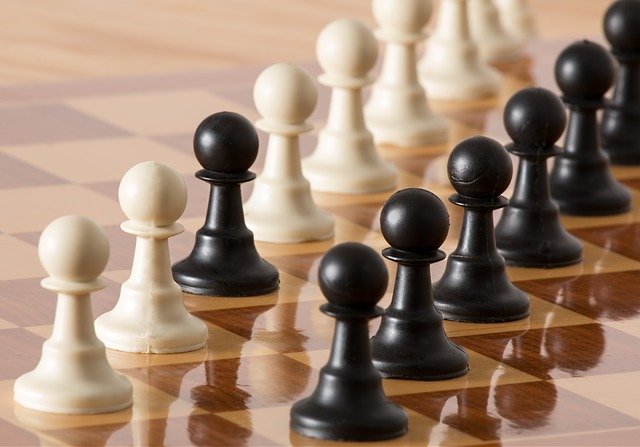

I know everything about poker. Ask me anything – continuation bet, pot odds, double barrel, blind defence, you name it, I know it all! Then how come I am always losing at poker?
So, you know almost everything about poker, but you are still losing money. Let us understand the possible reasons why you are losing at poker.
Are You Losing due to Bad Beats?

No matter what you try, you have no control over bad beats. Remember that victory is never guaranteed in poker unless you have the nuts. Pocket aces may have over 81% equity over pocket deuces on the preflop, but it still doesn’t guarantee victory. Your opponent might hit a set post-flop and win the pot. Call it the beauty or the curse of the game – this is the reality of poker!
The only thing you can do against bad beats is to ensure that you have played the hand perfectly. You may have lost due to bad beats but ask yourself, “Would you have won otherwise?” If the answer is yes, there is no point in tilting over bad beats. Learn to mock your own bad beats and just laugh it off. When you are unfazed about your bad luck, nothing can bother you anymore. Your opponents will never be able to exploit you if you don’t tilt on bad beats.
Are You Tilting Too Often?

Tilting has killed the careers of most of the poker players; so, it wouldn’t be surprising if you are losing at poker due to tilts. However, unlike bad beats, tilting is something that we can control. Whenever you tilt, ask yourself the following questions:
- Will you get frustrated and play irrationally?
- Will you combat your tilt and start winning again?
When you ask yourself these questions, you realize that there are only two consequences of tilting. You will start to take measures so that you combat tilts and start playing with optimal strategies.
You should be conscious enough to know what triggers your tilts so that you are well-prepared before the storm hits the port. There are many ways of controlling tilt. Click on the link below to learn the most effective ways of controlling your tilt.
Learn Now: How to Control Your Tilt in Poker?
Are You Studying Enough?

Poker has become a very competitive sport today where games are getting too tough. Players are studying extensively and continuously improving their game. So, if you are not studying the game enough, you are probably the weakest player at the tables.
Take some time out of your play schedule to do post-game analysis to see where you went wrong. Study the game thoroughly and learn new strategies. There is no harm in revising the fundamentals as well. You can revise all the fundamentals and even learn new strategies in our open poker school, which is free for everyone.
Learn poker strategies for free: Open Poker School
As the game has evolved so much, you cannot take the approach of a lone wolf to do all the studies alone. Join a poker community or study group and discuss strategies with like-minded people. We are sure that you have watched the Netflix miniseries ‘The Queen’s Gambit’. In the series, the protagonist Beth Harmon improves her game by staying in the basement of Benny Watts, where she plays chess and discusses strategies with Benny and his friends. Poker is also a game of skill like chess, where you get better by discussing and learning new strategies with other players. If all else fails, you can hire a coach who can help you to improve your game.
Are You Becoming Too Predictable?

When you go to your office and work with the same group of people over and over again, you can sense a pattern of behaviour from your teammates. The same goes for poker. If you play with the same group of players over and over again, your opponents can sense a gaming pattern from you. If you are multi-tabling and playing tight, your opponents can bluff and force you to fold if the board doesn’t connect with your tight range. Or, if you bluff too often, your opponents would start calling your bets. So, it is important to assess your playing style against players with whom you have played a lot. Make adjustments and change your style when required. If you still continue to lose against the same group of players, change the table and play against new opponents.
Are You a Victim of Collusion?

While most of the online poker sites have fraud detection teams, you may still be a victim of it. Collusion is a serious form of fraud that is plaguing the online poker industry in the country. And, it is so easy to do it! Here’s how it works: 2 or 3 players play together on the same online poker table. They play on their mobiles or desktop computers with separate internet connections that have different IP addresses. Since they are using different IP addresses, it is difficult for fraud detection teams of poker sites to catch them or prove that they were colluding.
The fraudsters know each other’s hands, and they will try to squeeze you in or out of the pot.
Squeezing You Out
- Fraudster 1 bets.
- You call.
- Fraudster 2 raises.
- When the action is on Fraudster 1, he will make a re-raise to squeeze you out of the pot.
Squeezing You In
If any of the fraudsters have the nuts, they will try to squeeze you into the pot to extract more money.
On the Flop and Turn
- Fraudster 1 has the nuts, and he makes a small bet.
- You call.
- Fraudster 2 makes a min-raise.
- When the action is on Fraudster 1, he simply calls.
- You call.
On the River
- Fraudster 1 bets.
- You call.
- Fraudster 2 simply calls instead of raising.
- Fraudster 1 shows his best hand (nuts).
- Fraudster 2 mucks.
It is quite difficult to identify such forms of collusion. When you see suspicious betting patterns from the same two or three players, you need to pay close attention. If the suspicious players keep entering the pot together, you should immediately inform the fraud teams of poker sites.
Steps to Reverse Your Losing Momentum

Always remember that poker is a long-term game. Momentary wins or losses don’t matter. What matters is the outcome you have reached. If the outcome is in losses, you need to answer the questions mentioned above to find a reason for losing at poker. However, the immediate need of the hour is to stop losing and follow the steps below to start winning again.
Be Logical, Not Emotional
Poker has become a very competitive game where you are up against players who know how to control their emotions. If you are the only player at the table who gets emotional easily, you will end up losing all of your money to your opponents. Your opponents won’t defeat you; you will end up defeating yourself! As humans, we are naturally inclined to become emotional in different situations. However, what makes a winner from a loser is the ability to control their emotions even in the worst outcome of a game. When you start to control your emotions and make your decisions based on logic, you will see a drastic change in your game!
Start Your Winning Momentum
Like all objects in Physics, we have the tendency to remain in motion. If we are losing, we tend to keep losing and remain in the losing momentum. You have to make it stop and reverse this momentum. In other words, you have to start your winning momentum so that you are in the motion of winning. Start small but win consistently. For example, win 10 big blinds on day 1, win 18 big blinds on day 2, win 15 big blinds on day 3, win 29 big blinds on day 4, etc. Celebrate small wins and enjoy the thrill of playing poker.
Improve Your Self Awareness
You must ask yourself, “Why do you play poker?” Do you play for fun? Is it your passion? Is it your side hustle or your means of livelihood? If it is for fun where losing at poker doesn’t really bother you, then make certain limits to your losses. If it is your passion, ask yourself if you are doing enough to pursue your passion properly. When you ask these questions, you will be more aware of what poker means to you. An improved self-awareness will make you conscious of your losses, and you will start to make big adjustments in your game.
Live a Balanced Life
Winning poker players live a balanced, disciplined life where they meditate daily, exercise regularly and play poker with utmost self-awareness. Identify the imbalances in your life, which could be drinking too much alcohol, not exercising, not getting enough sleep, not balancing work and play, etc. These imbalances don’t allow you to think optimally, which may be resulting in losses in poker. Find a proper balance in your life and fix any imbalances so that you could become the best version of yourself.




